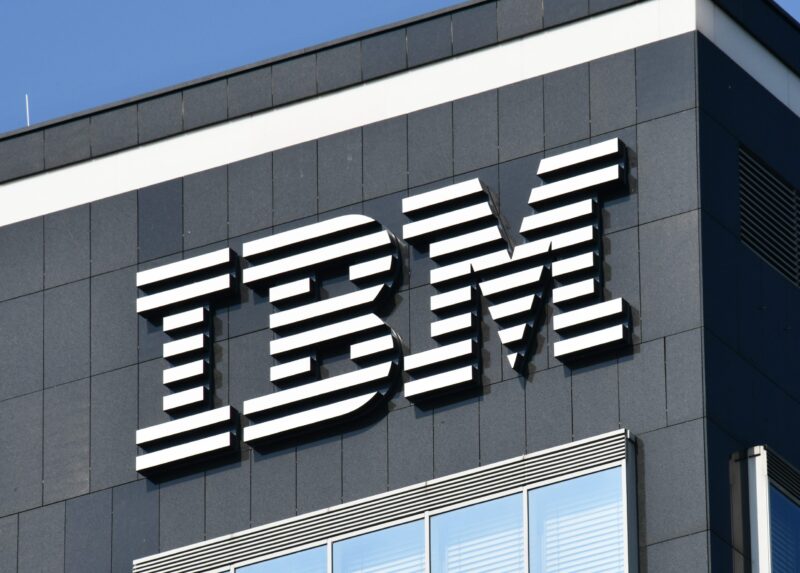A move toward advancing quantum computing, IBM has officially opened its first European quantum data center in Ehningen, Germany.
Ehningen, Germany- This is IBM’s second quantum data center globally, following the first located in the United States. The newly unveiled facility marks a major step in providing European businesses, governments, and research institutions with cloud-based access to cutting-edge quantum computing resources.
The data center is equipped with some of IBM’s most powerful quantum computing systems to date, offering organizations unprecedented computational capabilities beyond the limits of traditional classical computers.
A Milestone for Europe’s Quantum Computing
Quantum computing has long been heralded as the next big leap in computational power, with the potential to solve complex problems that current classical computers can’t handle. IBM’s decision to establish a quantum data center in Germany signals not only the growing importance of quantum computing for Europe but also the region’s readiness to harness this revolutionary technology.
The facility will support more than 250 organizations across the continent, including top universities, research institutions, governments, and industry leaders. These users will be able to access IBM’s quantum systems via the cloud, which will enable them to run complex quantum circuits and simulations that can impact fields such as artificial intelligence, pharmaceuticals, material science, and financial modeling.
Germany, in particular, has invested heavily in quantum computing, spending more than €2 billion on quantum technology since 2020. The country’s Chancellor, Olaf Scholz, expressed gratitude to IBM for choosing Germany as the site for this pioneering center. During the inauguration event, Scholz highlighted Germany’s commitment to staying at the forefront of technological advancements and stressed the role of public-private partnerships in achieving this goal.
“We have the capacity, infrastructure, and willingness to use these facilities for research,” said Scholz, underscoring the importance of quantum technology to the country’s future.
IBM’s Quantum Systems: The Eagle and Heron Processors
At the heart of this new quantum data center are two IBM Quantum Eagle-based systems and soon-to-be-deployed IBM Quantum Heron-based systems. These processors represent a quantum leap in performance over their predecessors, capable of computations beyond the brute-force capabilities of classical computers.
The new IBM Quantum Heron chip is particularly noteworthy, offering up to a 16-fold increase in computational performance and a 25-fold increase in speed compared to IBM’s earlier systems. Heron features three 133-qubit tunable-coupler processors, allowing for modular utility-scale quantum computing, and can handle 5,000 operations in a single quantum circuit.
IBM’s Quantum System 2 is designed to be a modular system, meaning it can be expanded and scaled up as quantum technology progresses. This adaptability will allow organizations to continue benefiting from advancements in quantum computing without the need for completely new infrastructure. As more industries begin to explore quantum computing, this system’s modular design ensures that IBM’s quantum resources remain future-proof.
Jay Gambetta, Vice President of IBM Quantum, emphasized the significance of making quantum computing more accessible to industries and research communities.
“The more people use quantum computing facilities like this, the more value we’ll be able to extract from the technology,” Gambetta explained. He added that unlocking useful quantum algorithms is key to solving real world problems, and to do that, quantum computers must be put into the hands of more users.

Quantum Leap for European Research and Its Industry
The Ehningen data center opens up immense possibilities for European businesses and researchers. Over 80 of the 250 institutions that form IBM’s global quantum network are based in Europe, signaling strong interest in the technology.
Organizations such as CERN and Fraunhofer-Gesellschaft are already leveraging IBM’s quantum resources for breakthrough research, while commercial industries are looking into how quantum computing can transform processes such as drug discovery, supply chain optimization, and secure encryption.
Ana Paula Assis, IBM’s General Manager for Europe, the Middle East, and Africa (EMEA), highlighted the strategic importance of this new quantum data center in enhancing European competitiveness.
She noted that the European Union plans to invest approximately €1 billion in quantum computing by next year, underscoring the potential value of the technology. Assis also stressed that the future of computing will be a hybrid of quantum and classical systems, stating, “We believe the future of computing will be hybrid.”
Quantum computing won’t replace classical computers; instead, it will work alongside them to tackle problems that are currently unsolvable by classical means.
This hybrid approach is crucial because it allows quantum computers to handle specific tasks such as complex simulations and optimizations, while classical computers take care of everyday computational needs.
IBM’s decision to build its first quantum data center in Europe reflects the continent’s ambition to become a global leader in quantum technology. The European Union has made it clear that quantum computing is a key strategic priority, and the region’s increasing investments in the field demonstrate that commitment.
By providing European institutions with access to quantum computing, IBM is helping to lay the foundation for future breakthroughs that could change the way we approach complex scientific and industrial challenges.
Germany, in particular, has emerged as a hub for quantum research and innovation, with numerous government initiatives and public-private partnerships already in place. With this new data center, Germany now stands at the forefront of the quantum computing revolution, offering a wealth of opportunities for collaboration between academic, industrial, and governmental bodies.










Join our Channel...